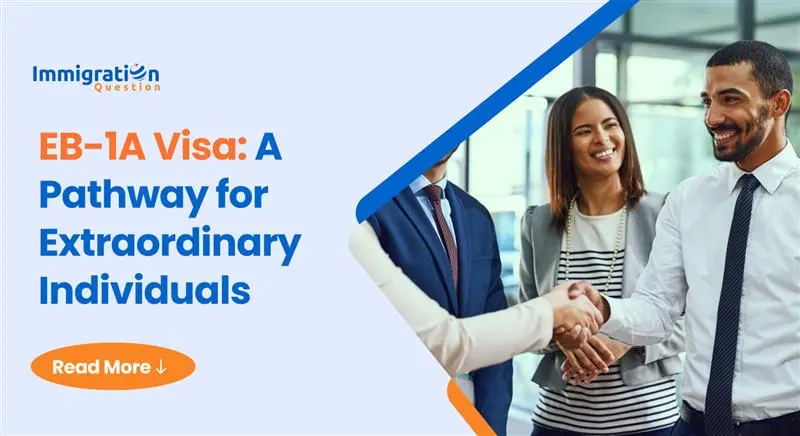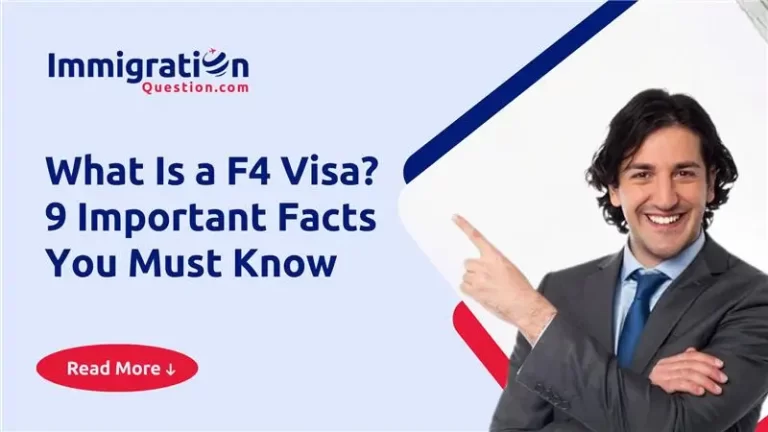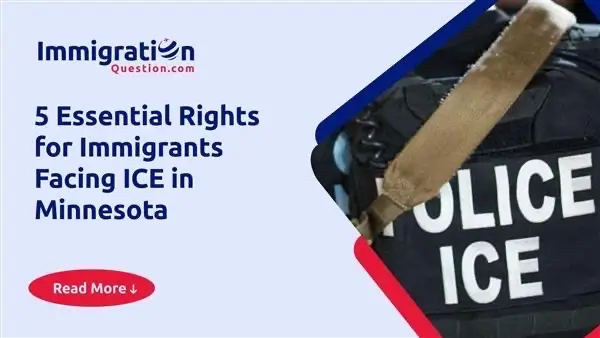When considering U.S. immigration options, one of the most flexible opportunities available is the EB-1A visa. The EB-1A visa is part of the Employment-Based First Preference category. You may have an immigration question about self-petitioning, requirements, or how to increase your application’s success. This blog will guide you through everything you need to know and why working with an Immigration Question attorney can help.
What is the EB-1A Visa?
The EB-1A visa is for individuals who can demonstrate extraordinary ability in the sciences, arts, education, business, or athletics. This visa is part of the Employment-Based, First Preference category, commonly referred to as EB-1. Unlike many other employment-based immigration options, the EB-1A offers greater freedom because it does not require a job offer or labor certification.
Applicants must prove their sustained national or international acclaim and show they will continue working in their area of expertise in the United States. If you seek specific answers about eligibility, a qualified Immigration Question lawyer is your go-to.
The Advantages of EB-1A Self-Petition
One of the unique features of the EB-1A visa is the ability to self-petition. Self-petition means that you, the applicant, can file the petition yourself without needing a U.S. employer to sponsor you.
Benefits of self-petitioning include:
- More freedom to explore diverse employment opportunities
- Ability to change employers without affecting your visa
- Direct control over your immigration process
However, the freedom of self-petitioning also means taking full responsibility for meeting all immigration requirements. Hire an Immigration Question attorney to streamline the process and avoid mistakes.
What are the EB-1A Requirements?
To qualify for an EB-1A visa, you must meet at least three out of ten specific criteria or provide evidence of a one-time major international achievement, such as a Pulitzer Prize, an Oscar, or an Olympic Medal.
Additionally, you must demonstrate that you will continue to work in your field of expertise once you are in the U.S. Work with an experienced Immigration Question lawyer to gather and present the strongest evidence.
Criteria for Demonstrating Extraordinary Ability
When applying for this visa, you must submit EB-1A evidence for either:
- A one-time achievement (such as an internationally recognized award), or
- Three (or more) of the following criteria:
- Awards and Honors: Receipt of lesser nationally or internationally recognized prizes or awards for excellence
- Professional Memberships: Membership in associations requiring outstanding achievement of their members
- Published Material: Evidence of published material about you in major trade publications or media
- Judging the Work of Others: Proof you have served as a judge of the work of others, either individually or on a panel
- Original Contributions: Original scientific, scholarly, artistic, athletic, or business-related contributions of major significance
- Authorship: Authorship of scholarly articles in professional journals or major media outlets
- Artistic Displays: Evidence that your work has been displayed at exhibitions or showcases
- Critical Roles: Serving in a leading or critical role for distinguished organizations .
- High Salary or Remuneration: Evidence that you command a high salary or remuneration compared to others in your field
- Commercial Success: Commercial successes in the performing arts
If some of these criteria do not fit your profession, you may submit comparable evidence demonstrating your extraordinary ability.
The evidentiary requirements for the EB-1A visa can be nuanced, so it is wise to consult an Immigration attorney for assistance.
Application Process for EB-1A Visa
The application process for the EB-1A visa involves several steps. They are:
- Filing Form I-140
First, you must file Form I-140, Petition for Alien Worker, with the United States Citizenship and Immigration Services (USCIS). This petition must be supported by extensive documentation proving your extraordinary ability.
- Adjustment of Status or Consular Processing
Once the I-140 petition is approved:
- If you are already in the U.S., you can file for Adjustment of Status to become a lawful permanent resident (Green Card holder).
- If you are outside the U.S., you will proceed with consular processing through a U.S. Embassy or Consulate in your country.
- Biometrics and Medical Exam
Applicants must attend a biometrics appointment (fingerprints, photo, signature) and complete an immigration medical exam by a USCIS-approved physician.
- Visa Interview
You will attend a visa interview to demonstrate your eligibility and intentions to continue working in your field.
- Approval & EB-1A Green Card Issuance
Once approved, you will receive your EB-1A visa and eventually a Green Card, allowing you to live and work permanently in the United States.
If you are unsure about any stage of the process, do not hesitate to contact an Immigration Question lawyer who can walk you through each requirement.
Family Benefits for EB-1 Visa Holders
If your EB-1A petition is successful, your spouse and unmarried children under 21 may also immigrate to the United States with you. They would apply under E-14 (spouse) and E-15 (children) immigrant status categories.
These categories also allow your immediate family members to live, work, and study in the United States as permanent residents.
Why Work with an Immigration Question Attorney?
While the EB-1A offers incredible advantages, including bypassing the labor certification process and not needing a job offer, it involves extensive documentation. Each piece of evidence must be compelling, well-organized, and presented clearly.
Hiring an Immigration Question lawyer ensures you:
- Understand the full range of acceptable evidence
- Meet all USCIS procedural and formatting requirements
- Strengthen your petition with professional guidance
- Increase your chances of success in a highly competitive category
A small oversight can lead to a denial. With an experienced immigration attorney, your chances of approval significantly increase.
Connect with a trusted attorney on Immigration Question to start building a strong petition today. Your extraordinary achievements deserve extraordinary opportunities, and the EB-1A visa can open the door to such opportunities in the United States.
Frequently Asked Questions About the EB-1A Visa
-
How long is the EB-1A visa valid?
The EB-1A visa leads to lawful permanent residency, meaning it has no expiration date like temporary visas. As long as you maintain your status and fulfill the conditions tied to your field of extraordinary ability, your status is valid indefinitely.
-
Does the EB-1A visa lead to a green card?
The EB-1A visa is a direct pathway to a green card. Once your Form I-140 is approved, you can apply for Adjustment of Status if you are in the U.S. or go through consular processing abroad to become a lawful permanent resident.
-
What is the EB-1A visa availability?
The EB-1A category is not subject to the same numerical limitations as other employment-based visas. There is often no cap or extended waiting time for qualified applicants. However, processing times can vary depending on individual circumstances and USCIS workload.
-
Can I include my spouse and children in my EB-1A visa application?
Your spouse and unmarried children under 21 can apply for derivative immigrant visas (E-14 and E-15 categories) once your I-140 petition is approved. They can also apply for an adjustment of status if they are already in the United States.
-
Do I need a job offer to apply for the EB-1A visa?
You do not need a job offer to apply for the EB-1A visa. One of its most significant advantages is allowing self-petitioning based on your extraordinary ability. This flexibility gives you more freedom over your career choices in the U.S. For detailed advice on your petition, contact an Immigration Question attorney.
-
Can I apply for an EB-1A visa if I am already in the U.S. on another visa?
If you are currently in the U.S. on a different visa, you can still apply for the EB-1 visa if you meet the eligibility criteria. Once your I-140 is approved, you may apply for Adjustment of Status without leaving the country. An Immigration Question lawyer can assist with the process of switching from your current visa to the EB-1A.











